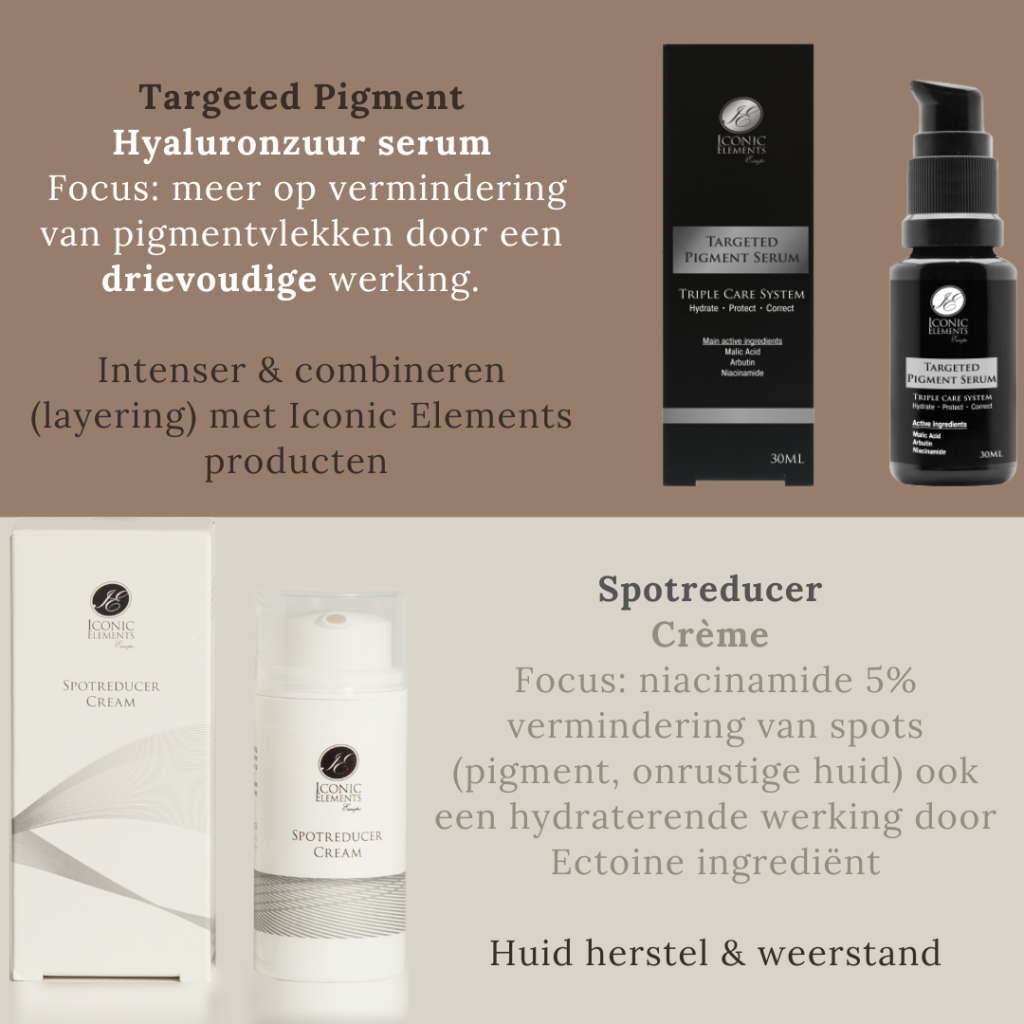Skin care in spring, is that different?
Spring, you already noticed. The days are getting longer, the crocuses are blooming and it’s getting a little warmer. Winter is coming to an end and your thick scarf and heavy parka will soon be exchanged for a lighter coat.
Just like changing your clothes, your skin care routine changes. The dry, cold air outside and the warm, dry heating heat inside can have major effects on your skin during the winter months.
Winter and our skin, what’s happening?
The winter cold, wind, little sun, heating and lower humidity, possibly that you shower longer and warmer or bathe more often have influences on our skin barrier. This leads to reduced hydration of your top layer of your epidermis, the acidity (pH) of your skin rises and the lower temperature makes you sweat less. In winter, less ceramide is also formed in your sebum, a lipid (fat) that consists of 50% of your sebum composition. This results in your skin becoming drier. More on: what you need to know if you have dry skin.
Itchy, scaly and dry, why? Due to the rising acidity of the skin, changes in your sebum composition cause the mutual cohesion of the stratum corneum cells (upper skin layer cells) to decrease. Your skin will first flake and if it continues, it will become drier due to water loss from your skin and then it will become itchy and red. We also call this asteatotic eczema or winter itch. More about: do I have dry skin or eczema.
An optimal well-hydrated top layer of skin has 10-15% moisture, below 10% moisture the skin becomes drier and flakes.
How do you prepare your skin for spring?
At the end of the winter period, your skin can look duller and the glow is less. To make it spring ready.
- Exfoliate your skin to remove superficial dead skin cells. This ensures that your skin looks fresher. If you use a self-tanner, the self-tanner will take better and look more even if the skin has been scrubbed before.
If you are a regular or a Oily skin, you can exfoliate 2-3 times a week. Is the skin sensitive limit it to a maximum of 2 x per week.
There are several ways to exfoliate your skin. 1. fine-grained sugar, salt or plastic microbeats scrubs – the latter is less sustainable and bad for the environment 2. fruit acids – AHA, BHA, glycolic acid, and salicylic acid 3. brushes
Brushes work well, but it can irritate the skin more. For those with sensitive skin, build it up gently and start with 1 x per week and with low concentrated fruit acid such as BHA.
2. A different season, needs a different skin care, the somewhat thicker emollentia such as, ointments or Vaseline can be replaced by a somewhat lighter skin care.
Sun protection:
The sun’s power is getting stronger, from April it will attract more and UVB rays will increase in strength. There are two types of UV rays, UVA and UVB. UVA rays are present all year round with relatively equal intensity and pass through clouds and penetrate windows. UVA rays cause Aging of the skin, is always present and Asymptomatic, you do not feel it on the skin.
UVB rays gain strength from April and UVB is weaker in the autumn and winter period in the Netherlands. UVB causes more skin burning from April, including skin cancer and ensures skin’s own vitamin D production in the skin in contrast to UVA rays. Your skin’s own vitamin D production is better processed in the body. So if you use a day cream with only SPF, it doesn’t cover UVA rays, SPF only says about the degree of protection against UVB rays. So a sun protection with both UVA and UVB protection in the spring period.
Other spring skin care tips?
Bakuchiol is an option for evening serums with vitamin A (retinol) or if your skin is easily irritated by vitamin A. Bakuchiol is a component found in Ayurvedic and traditional Chinese medicine. This oil extract comes from the seeds and leaves of the babchi plant. It has traditionally been used for its antiseptic and anti-inflammatory properties.
Research shows that Bakuchiol can prevent skin aging. It is a good alternative to vitamin A acid. Although Bakuchiol and vitamin A have no similarity in chemical structure, both components stimulate the same gene expression: they activate collagen stimulation and can counteract the formation of pigment spots. Bakuchiol causes less skin irritation than vitamin A. Especially for people with sensitive skin, vitamin A can irritate the skin. Peptide is also an alternative for people with sensitive skin.
Against rosacea and acne, look for products with niacinamide (Vitamin B3), which reduce pigment formation by 35-68%, inhibit inflammation and increase skin resistance and barrier.
For pigmentation, look for ingredients that include vitamin C, niacinamide, vitamin A, arbutin, kojic acid, resveratrol, emblica, and fruit acids. More abour pigment and Targeted Pigment serum

In the spring period, the sun allergy starts for people who are predisposed to it. The skin is not yet used to the sun and will react to it. If you suffer from sun allergy, build it up slowly by going outside (light habituation). Do use sun protection for this.
The basis of good skin care?
The basis is skin barrier recovery and ensure the correct acidity of your skin, which is around 5. Good acidity ensures a better skin barrier, less chance of skin infections, eczema and an Asian study also showed fewer wrinkles if the skin acidity is good. More about the correct acidity of your skin.
For the evening, a light-feeling cream or serums. Use a sunscreen during the day and don’t underestimate UVA rays. A cloudy or rainy day, its UVA rays are also present.
Make sure you cleanse your skin at least once a day. If you use acne, makeup, then 2 x a day is better with a mild cleanser.
And what should you not do?
Too much… exfoliating. Signs of over-exfoliation are: dry skin, irritation, redness, burning, shine on the skin without skin care cream and sometimes also pustules because the skin barrier is disrupted.
Ingredients that are too highly concentrated can irritate the skin, especially for people with tinted skin, I see counterproductive pigment spots due to skin irritation in combination with sunlight.
Applying vitamin A during the day can make the skin more irritated by sunlight.
No tanning bed in the spring to supposedly let the skin get used to it!
Tanning beds mainly give UVA light. This UVA does cause a brown discoloration, but not the thickening of the epidermis. UVB rays do provide a thicker epidermis, but too much can lead to sunburn.
Be aware of medications that can cause photosensitivity
Water tablet against high blood pressure: Hydrochlorothiazide
Cardiac arrhythmia: Amiodarone
Antibiotics: Doxycyclin, Minocycline
Anti-fungal: Voriconazole, Terbinafine
Anti-malaria: Hydroxychloroquine
Immunosuppressants: Methotrexate, Azathioprine
